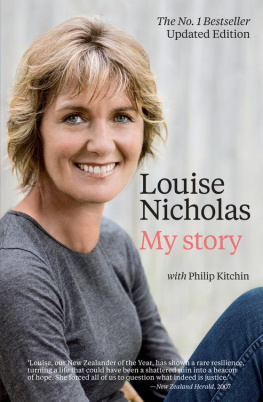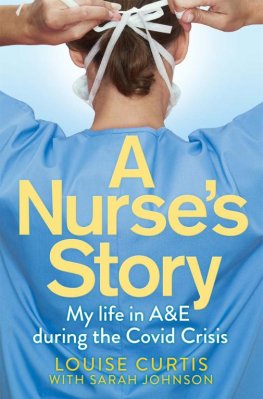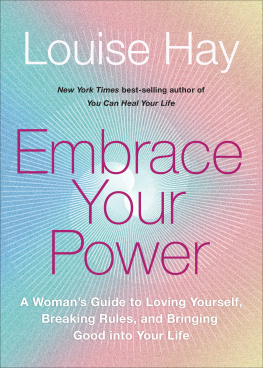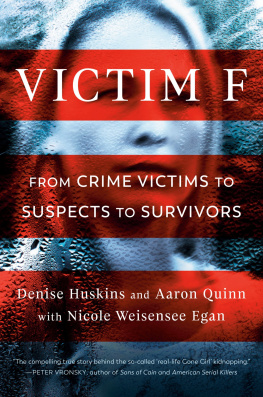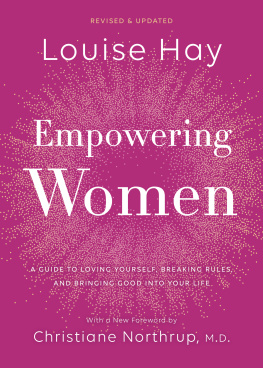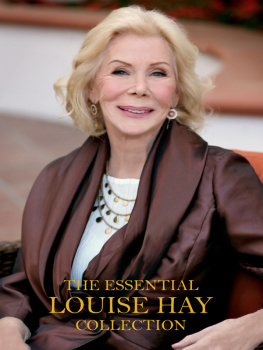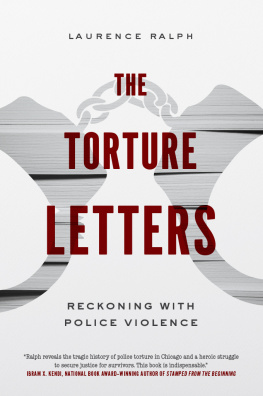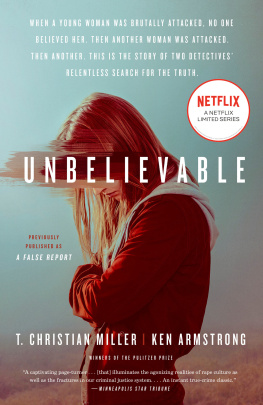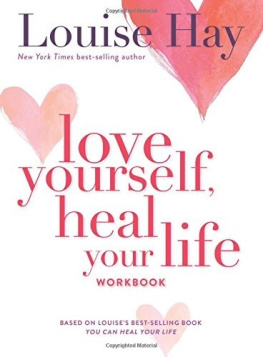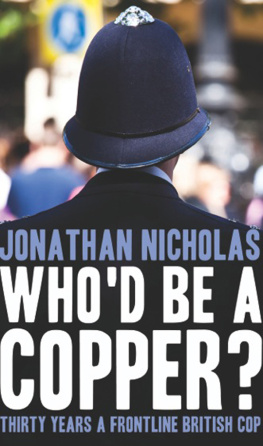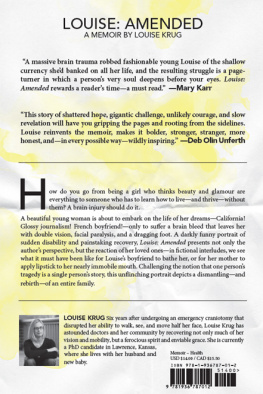Whats the real story behind Louise Nicholas claims of gang rape by policemen?
What allowed her to bring her darkest and most harrowing secrets into the harsh light of public opinion?
This hard-hitting and moving expose tells the sad story of a teenager whose abuse by police first began when she was a 13-year-old and continued throughout her teens.
It is written with award-winning journalist Philip Kitchin, whose investigations into the cover-up of Louises complaints led to the trial of three high-ranking policemen.
Louises life has turned full circle and she now advises senior police, works with survivors of sexual violence and contributes to forums looking at changes to our justice system. Louise continues to symbolise relentless courage and determination.
Many people are affected by sexual violence. If you, or someone close to you, would like to talk to someone experienced in this field, call 0800 88 33 00, the Rape Crisis National 24-Hour Helpline; or 09 623 1700, HELP; or go to the Rape Prevention Education website www.rpe.co.nz
Note: Some names in this book have been changed because of court suppression orders.
To my husband, Ross, thank you for standing by me, accepting me, loving me.
To my children, Jess, Kerri, McKaela and Luke, your unwavering love and support helped see this journey to the end.
And to my mum, Barbara, and my best friend, Angela George, your footsteps may no longer leave a print on this earth but it was your wisdom, honesty and love that gave me the courage and the strength to be who I am today.
Louise Nicholas
Id like to pay tribute to my anonymous police sources. They know who they are, and without them my work would have been impossible. They are brave and honourable men and women who saw injustice and wanted it righted. I also salute the courage of those women who came forward to tell me their stories.
Philip Kitchin
Contents
- Foreword
Kim McGregor - Courtroom 12
Louise - Secrets surface
Phil - Do we have a deal?
Phil - Country girl
Louise - The meal room
Louise - Im all good
Louise - Rutland Street
Louise - A mess of information
Phil - Putting my nightmares in a box
Louise - Detective Inspector John Dewar
Louise - Something else going on
Phil - On trial
Louise - Scoring his own goals
Phil - Doing my bit
Louise - A sense of peace at last
Louise - A scruffy-looking bugger
Louise - A huge cover-up
Phil - One hell of a story
Phil - Getting some answers
Louise - Sheer guts
Phil - A huge step towards justice
Louise - Many, many tip-offs
Phil - Just the start of it
Louise - The waiting game
Louise - The Louise Nicholas trial
Phil - Trial mode
Louise - Reality
Louise - A long, emotional night
Phil - Injustice everywhere
Phil - The reason for all this
Louise - Sequels and consequences
Phil - The rollercoaster rolls on
Louise - Full circle
Phil - Finally at peace
Louise - Helping others to heal
Louise - The story that never sleeps
Phil - Moving forward
Louise
Kim McGregor
LOUISE NICHOLASS EPIC FIGHT for justice has made her a heroine to many in New Zealand. Her battle became the battle for countless survivors of sexual violence throughout the country, many of whom have never received justice themselves.
Louises courage and tenacity are unique. For completely understandable reasons, as many as half of all survivors of sexual violence never tell anyone about their experiences. There are many reasons why they dont tell. Most dont report because they blame themselves for the sexual violence, many dont think they will be believed and some want to protect someone such as themselves, the person who harmed them, or those close to them. Many also do not want to report what is often a brutalising, very long and re-traumatising police and court process, where there is little hope of the offender receiving any form of sanction. As a result of the Ministry of Womens Affairs research completed in 2009, we now have New Zealand statistics that tell us that only about seven in a hundred report their experiences of sexual violence to the police. Of the seven who report to police, only about three will get to court, and of those three trials only one is likely to end in a conviction.
Louises case against police officers Clint Rickards, Brad Shipton and Bob Schollum was one of the 99 in 100 cases of sexual violence that did not result in a conviction.
Rape survivors often describe their court experiences as re-rape. In rape trials it is common for rape survivors to feel that they are the ones on trial not the accused. The accused has the right to silence. The Crown has to prove beyond reasonable doubt that the crime happened. With most crimes of sexual violence there is likely to be reasonable doubt, because only rarely are there witnesses to the alleged offending or who can say whether consent was truly or freely given. Often the battle is over consent and so the argument shifts to who seems the most credible in telling the truth about consent. In this battle, lawyers on both sides try to destroy the other primary witnesss credibility. Only one side the complainant must be cross-examined. The defendant does not have to be cross-examined if they chose not to testify. In the context of our current system, the complainant, who will be cross-examined by the defence, has to try to persuade the jury that she or he is telling the truth about their lack of consent.
Throughout the case against Rickards, Shipton and Schollum, with Louise as the Crown witness, the unfairness, cruelty and traumatising nature of our current adversarial system, the inadequacy of our consent laws, and inequitable suppression laws were lit up for all to see.
Throughout her struggle for justice, Louise took the stand on seven occasions, where she was cross-examined for a total of 10 days, by six defence lawyers.
After Rickards, Shipton and Schollum were acquitted on all 20 counts of the sexual violation of Louise Nicholas, women and men around the country, from all walks of life, took to the streets in outrage, especially when they discovered that Shipton and Schollum were already serving prison sentences for rape convictions. Some even risked being jailed for distributing this suppressed material. In 2006, the wave of public outrage was of a kind that I had not seen in my more than 20 years of working with survivors of sexual violence. People were angry and vocal. Their rage focused on the failure of our court system to provide survivors of sexual violence with any form of justice or fair trial. Helen Clark, Prime Minister at the time, asked the Law Commission to consider changing the law so that the jury can know when an alleged sex offender has similar previous convictions.
But Louises fight was not over. Although it was not publicly known at the time, a prosecution was also being taken against senior policeman John Dewar, the officer to whom she initially reported the actions of Rickards, Shipton and Schollum. The guilty verdict in that later case confirmed that Louises right to justice had been thwarted for almost two decades.
Despite the betrayals, police corruption, and all the other obstacles thrown in her way, Louise has continued to fight to have her truth heard, and a great deal of good has been achieved through her ongoing battles. Louises fight for truth and justice has been a fight similar to that of most survivors of sexual violence. But her fight was also pivotal in Prime Minister Helen Clark establishing the Commission of Inquiry into Police Conduct and the resulting changes recommended by Dame Margaret Bazley. Over a 10-year period, changes designed to improve police procedures, attitudes, training and investigations of crimes of sexual violence will be implemented.

